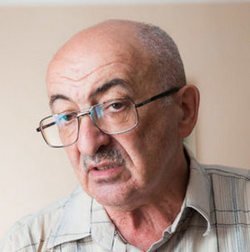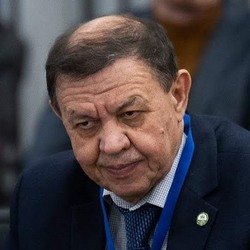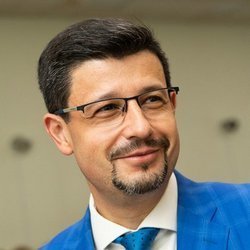Young blood for Smart City: interuniversity campus to be built near Kazan
The republic hopes to receive more than 50 billion rubles for the implementation of the project from the federal budget
As it became known to Realnoe Vremya, the interuniversity Strategic Session has recently completed its work in Kazan in conditions of complete secrecy on the basis of the Kazan State University of Architecture and Civil Engineering (KGASU), the purpose of which was to prepare a plan for the revival of the long-shelved technopolis project Smart City Kazan and enter with it into the Russian project for the creation of world-class scientific and educational centres. How in the Laishevsky district of Tatarstan they plan to build a grandiose university campus with federal money, what the approximate scale of costs and prospects of the project are — read the details in our exclusive material.
Goal is to enter federal project
On Tuesday, the Strategic Session ended in the KGASU, where plans and prospects for the creation of the intercollegiate campus on the territory of the failed technopolis Smart City Kazan were discussed, in which, in addition to student halls of residence and academic buildings, laboratory and production buildings will be built for testing with a view to the subsequent launch of products developed by the universities.
The Strategic Session, which was attended by all leading universities, was held in two rounds: the first round was held from November 13 to 16, the second — from November 27 to 30. Alexander Dembich, a participant of the session, the head of the Department of Urban Planning of the KGASU, told Realnoe Vremya about the plans to revitalise the Smart City Kazan project by placing one of the largest student campuses in Russia on this territory.:

50bn rubles, 20k students, and a full aeroexpress train
Alexander Dembich said that plans to create the intercollegiate campus on the territory of Smart City suggest initially using 250-300 hectares out of 600 hectares allocated for the technopolis. According to the estimates of the participants of the Strategic Session, hundreds of billions of rubles will be required for the implementation of the project, 50-60 billion rubles for the initial stage. And, perhaps, he added, the republic will also have to invest in the project.
In this case, 20-30 thousand students will move to the campus in the Scientific and Educational Centre (REC). This looks more than relevant in a situation of acute shortage of places in halls of residence of a number of universities — Realnoe Vremya has recently reported about a shortage of places in the halls of residence of the Kazan Federal University(KFU), which even provoked announcements about the “sale” of places in university halls of residence in social networks.
“The relocation of such a large number of students will revitalise transport logistics in this area," said the town planner. “Aeroexpress trains go there now, but rarely and half-empty. After the appearance of the campus, I think it will be packed to the limit and will run more often, because most of the academic buildings of our universities are located in Kazan. Despite the presence of a good highway, the focus is made on rail transport. In Tatarstan, it is planned to build a high-speed railway between Kazan and Naberezhnye Chelny, which will also pass through the campus. It also should not be discounted that the new M12 highway is already being built in the immediate vicinity.”
Who needs the campus?
Realnoe Vremya asked Alexander Dembich which universities would be primarily interested in the project of creating the interuniversity campus in the Tatarstan REC.
“Each university has different needs. Most of them have academic buildings and halls of residence scattered around the city, and the presence of such a campus will be a way out for them. And they will be able to 'repurpose' the vacant halls of residence for academic buildings.”
For the KGASU, the town planner noted, this issue is not so relevant today, the academy has its own large “town” on Kalinin Street and a small building on Ershov Street. But if the university expands and the territory ceases to correspond to the flow of students, it will also be able to place some of its facilities on this campus.
“Now the creation of the campus in the Laishevsky district is most relevant forKazan National Research Technical University named after A.N. Tupolev, Kazan Federal University, because they have the largest spread of academic buildings and halls of residence throughout the city. To some extent, this is also relevant for the Kazan State Medical University: if a large number of students and part of the teaching staff live on the campus, then a large multidisciplinary medical centre will inevitably appear there to serve them.”
“Now we are figuring out what our potential is”
At the event, which brought together representatives of universities and scientists, the problems of higher education were also discussed. Apparently, the republic has room for growth.
“The Strategic Session was devoted not only to the plan of creating the interuniversity campus," President of the Academy of Sciences of the Republic of Tatarstan Myakzyum Salakhov told Realnoe Vremya. “Now there is being an audit of scientific and educational activities in the republic. Having such a potential, we did not quite adequately take places in the state programme Priority 2030. Having such universities — national, federal, we had to take higher ones, but only the KFU entered it, and then only at the regional level. Therefore, now we are finding out what we have, what our potential is and which of the universities can apply for grants related to educational programmes. And including participation in the programme related to the creation of such campuses.”

“The project of a single campus, or, as we call it, a large university, is a very good idea, but it should be considered in the context of where our universities are located," says the rector of TISBI, Aleksey Lopatin. “For example, the already existing Tomsk campus, which united universities— is a very serious landmark in the scientific and educational sphere. But our universities are mostly concentrated in the historical and geographical centre of Kazan. But if we talk about the campus in the traditional sense — as a place of residence for students, teachers and a place of concentration of academic buildings, then moving the entire scientific and student community to the Laishevsky district will be a costly matter, to some extent comparable with the Moscow renovation.”
The idea seems to Lopatin to be excellent, only the location confuses him — there is no certainty not only that the creation of the campus at a distance from the capital of the republic will be economically justified, but also that a university professorship will go there to live and work.
But in principle, the creation of such a “big university”, in which students can study, scientists can work, and all together — create collaborative interuniversity projects and test the release of products developed by them, seems to the scientist a very promising matter.

First attempt
The Smart City Kazan project originated in 2009 — it “grew” from the initiative at that time of the head of the Investment Development Agency of the Republic of Tatarstan, Linar Yakupov, to create an international exhibition and conference centre in the area of Kazan Airport. The revised and verified project of the Smart City Kazan technopolis was presented to Rustam Minnikhanov in September 2012. It was planned to be implemented under the patronage of the president of Tatarstan, the Tatarstan Investment Development Agency supervised the project, and the project operator was a company specially created for these purposes — Tatarstan Development Corporation JSC.
650 hectares in the Laishevsky district were allocated for the placement of the technopolis, which was expected to attract investors in an amount sufficient to create jobs for the future 40-thousand population of the “smart city”. The site of the district soon posted a draft layout of the territory. In the autumn of 2013, the first stone of Smart City was laid. The master plan of the city won the FIABCI Prix d'Excellence international competition. But, despite the advantageous location — 3 kilometres from the airport and only 15 kilometres from the centre of Kazan, the project was never implemented.
As part of the presentation of the project in 2012, Tatarstan President Rustam Minnikhanov held a working meeting with representatives of the potential investor of Smart City Kazan — PHCapital company, this was officially announced. However, no information about cooperation was subsequently received.
As a result, the Kazan Expo was built next to the airport, the logistics centre of the Russian Post was built on the territory of Smart City Kazan, and then it did not go further. Rustam Minnikhanov declared the Innopolis project a priority, the Smart City project was practically ceased to be developed from 2015.